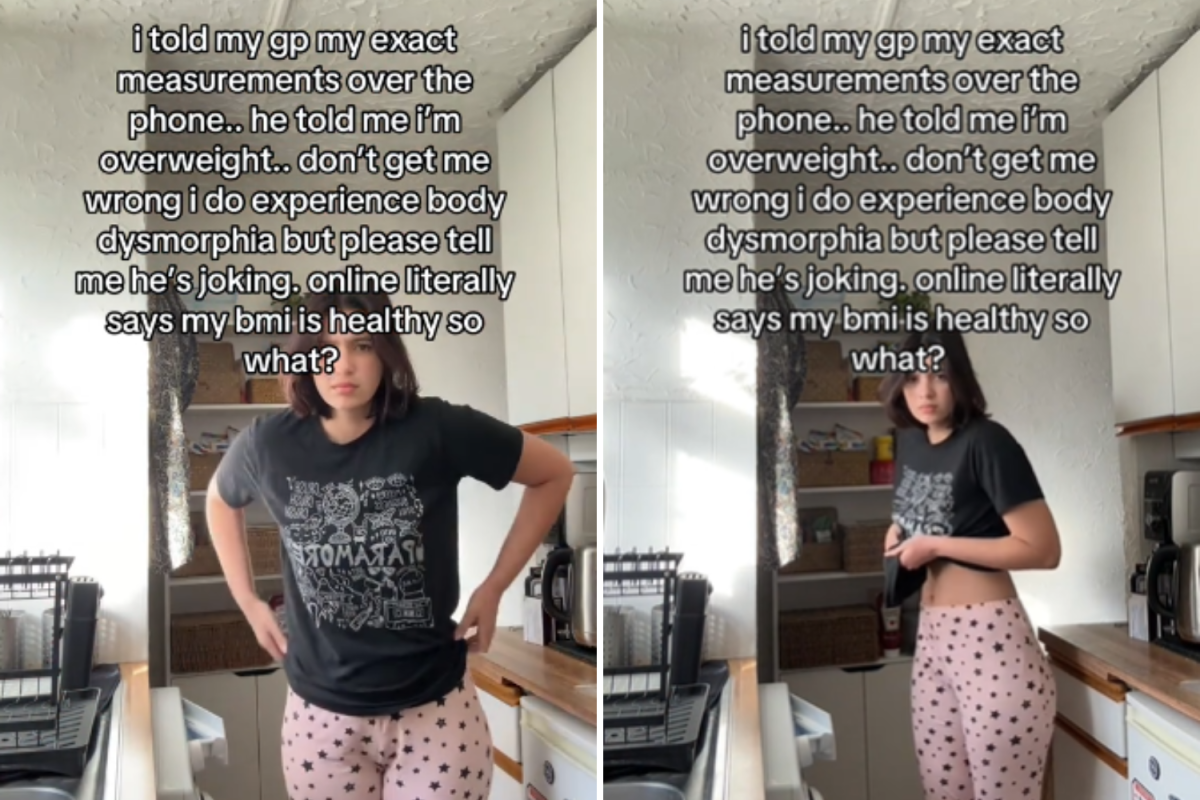A young Gen Z woman has shared her shock on social media after she was told by her doctor that she is "overweight" despite her slim appearance.
Isabella Aslam, 19, from London, has struggled with mental health issues and food aversion throughout her teens and was left stunned and upset by a routine phone consultation with her doctor.
Aslam had sought medical advice for fatigue and other symptoms, but when she shared her weight and height over the phone, her doctor—who she didn't identify—made a remark that left her in disbelief.
"Great, you're overweight, so you should be fine," the doctor said, according to Aslam.
"I didn't question him because I was just kind of shocked," Aslam told Newsweek. "I've always floated between underweight and the lower side of healthy, but with my mental health disorders and medication, I've been able to gain weight—only to a healthy weight, nothing more."
Aslam, who is quite tall, initially thought the doctor had perhaps made a mistake with her height. But after checking her health record, she confirmed that her measurements were accurate. The doctor had added only about two pounds to her recorded weight, but the comment still felt unnecessary and damaging.
For Aslam, who is vulnerable to eating disorders and has a long history of food aversion, the doctor's words struck a deeper chord.
"I've made so much progress with my food aversion this year, but this information makes me feel like it's taken back some of my progress," she said.

Aslam shared the experience earlier this week in a video to TikTok that has since been viewed over 200,000 times and sparked conversation about health, weight and body image issues.
"I told my gp [general practitioner] my exact measurements over the phone. He told me I'm overweight. Don't get me wrong I do experience body dysmorphia but please tell me he's joking. Online literally says my bmi [body mass index] is healthy so what?" the video's text overlay reads.
One TikTok user wrote: "Change doctors immediately. He will not help you. You can state why/make a complaint. He will cause so much harm to others.
Another user posted: "You're not overweight. Medical professionals still don't seem to understand women's bodies."
After sharing her experience on TikTok, Aslam was comforted by the reaction.
"So many people shared their experiences of being told the same thing who were clearly very healthy individuals," she said. "I do understand the flaws of BMI because it doesn't take into account fat percentage, but that's also why I made the video, to show people why we can't trust BMIs. Not one person so far has disagreed and it has been quite reassuring for me that I'm not alone in this experience."
What is BMI?
BMI, or body mass index, is a number derived from a person's height and weight. Calculated by dividing a person's weight by their height, the result then classifies individuals into categories: underweight, normal weight, overweight, or obese.
Is BMI Accurate?
Despite widespread use, experts are increasingly questioning the accuracy and relevance of BMI as a measure of health. In an October 2022 article in the Montreal Gazette, Bryn Austin, a professor at Harvard T.H. Chan School of Public Health, highlighted how BMI can lead to harmful outcomes.
Austin, alongside co-author Tracy Richmond from Harvard Medical School, called for clinicians to move away from BMI as a clinical metric.
They pointed out that BMI fails to account for important variables such as fat percentage, fat distribution, and muscle mass. Meanwhile, BMI was developed based on data from white males, making it less applicable to women, or other racial and ethnic groups.
Studies have shown that focusing too heavily on BMI can erode trust between patients and doctors. Patients who feel judged or shamed due to their BMI are more likely to delay or avoid seeking medical care, potentially worsening their health outcomes.
Austin and Richmond wrote: "In many of the instances in which BMI is assessed in medical settings, the information is not pertinent to medical decision making and often not even used. Thus, BMI assessment may be causing risk while providing minimal to no benefit."
If you or someone else needs help, contact your doctor or the National Alliance for Eating Disorders helpline at 1 (866) 662-1235.




















 English (US) ·
English (US) ·